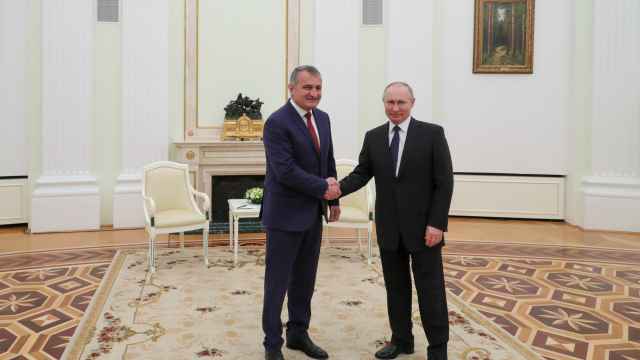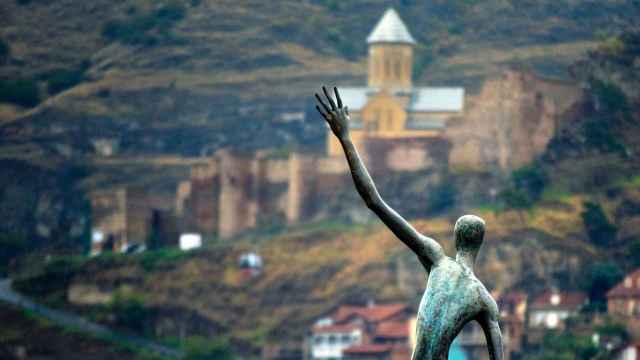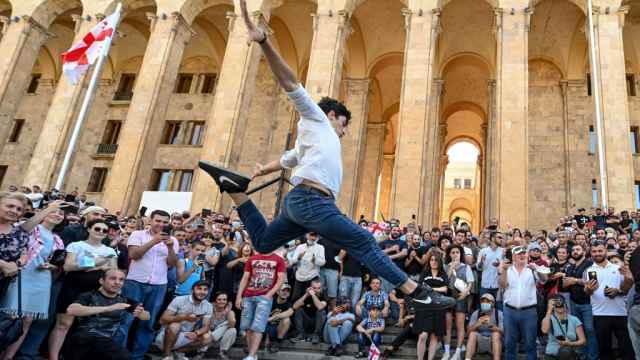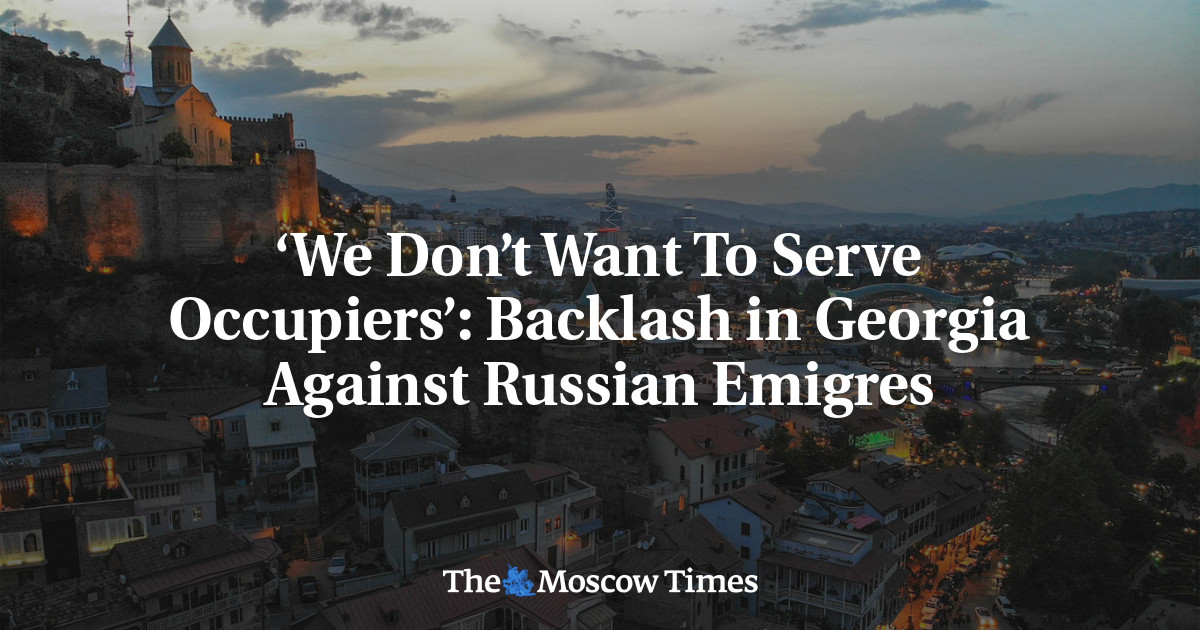
Now is the time to support independent reporting from Russia!
‘We Don’t Want To Serve Occupiers’: Backlash in Georgia Against Russian Emigres
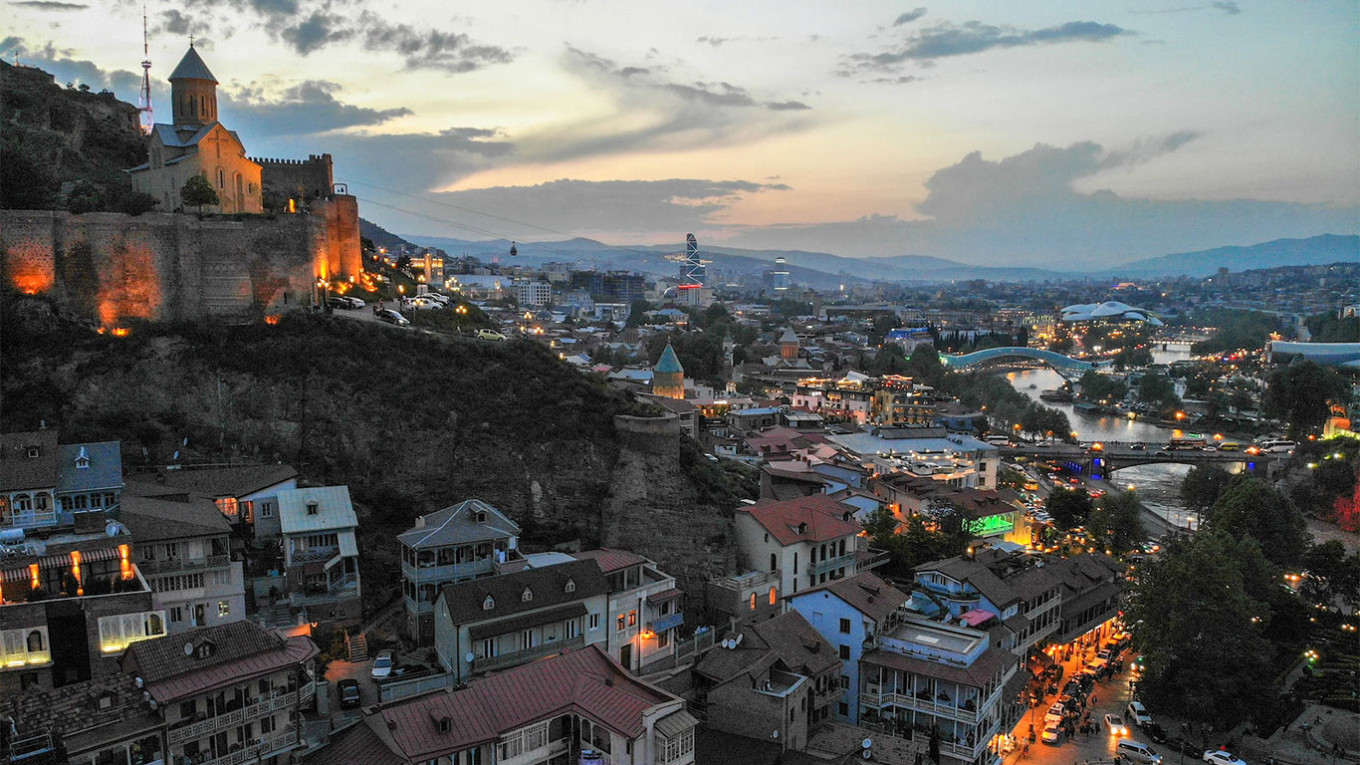
TBILISI, Georgia — “The world should stop Russian aggression,” reads a poster on the wall of a bar in this South Caucasus nation that has become home to tens of thousands of Russian emigres since the invasion of Ukraine.
“Russians who are coming to Georgia should never forget they are coming to a place that is under attack from their country,” said Data Lapauri, the owner of Dedaena bar.
For many Georgians, the Kremlin’s invasion of neighboring Ukraine has revived painful memories of the 2008 Russo-Georgian war and the support Moscow offers to Georgia’s breakaway regions. At the same time, a flood of anti-war Russians fearing conscription, economic crisis and a political crackdown back home have become a noticeable presence on the streets of the Georgian capital Tbilisi.
While most Georgians have no problems with the new Russian community, some tensions continue to bubble up as the six-month-long war in Ukraine shows no sign of ending.
In one sign of friction, a few Georgian business owners have started requiring Russian customers to confirm they don’t support President Vladimir Putin — verbally or in writing.
Dedaena is one of the establishments to have implemented what they term a “visa policy.”
Russian citizens who want to enter the bar must fill in an online form and agree to a list of statements, such as “I condemn Russian aggression in Ukraine.”
Visitors are also asked not to speak in Russian or “engage in political discussions while being drunk,” according to the online form.
“It’s an extreme policy to say that people of a certain nation are not welcomed here. But I don’t want to have someone who supports the war in Ukraine and voted for Putin at the bar that I own. We don’t want to serve the occupiers,” Lapauri told The Moscow Times, sitting on the bar’s terrace on a busy Thursday night.
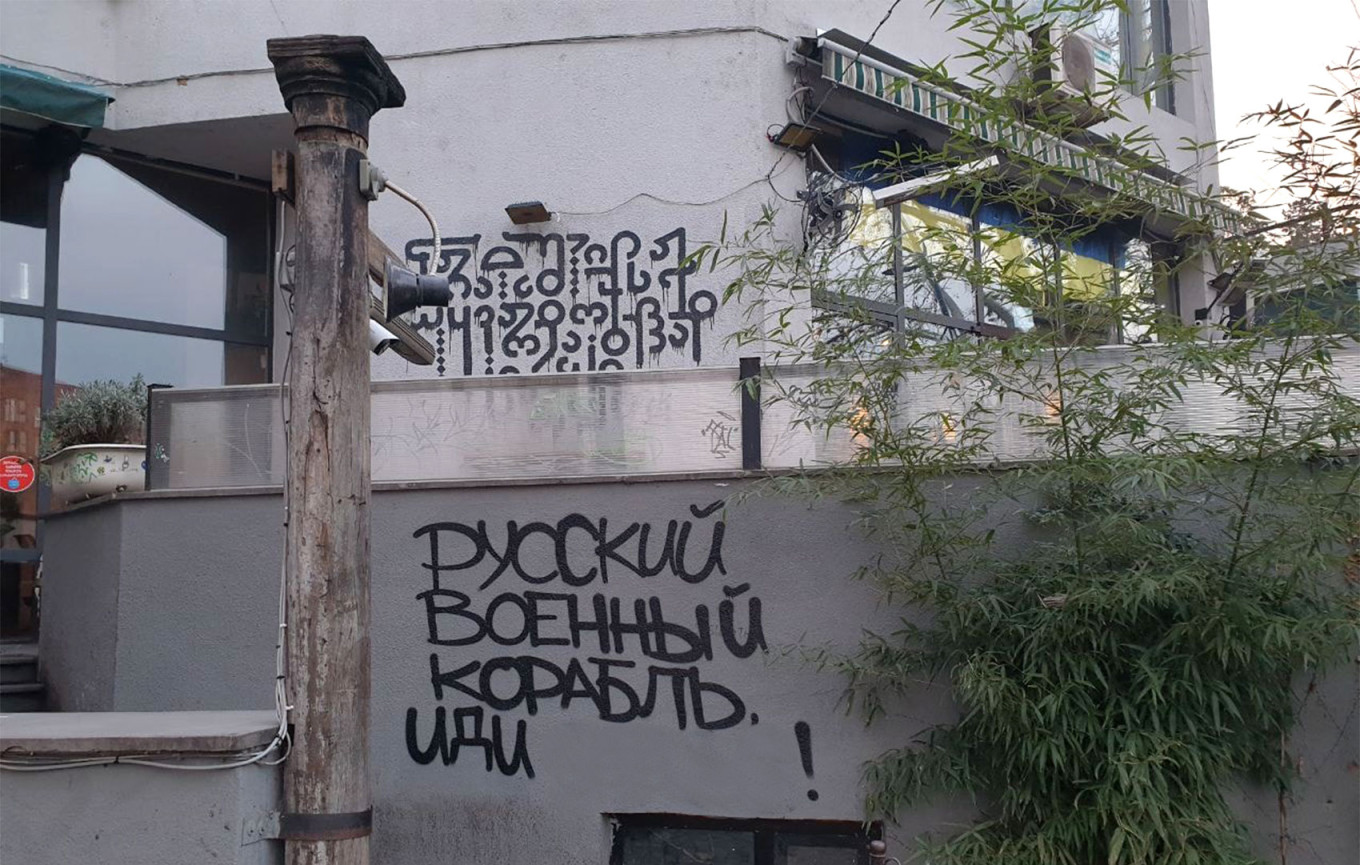
Other cases of Georgian business making special demands of Russians include Bank of Georgia, which briefly asked Russians to sign a form in March saying that they “condemn Russia’s aggression in Georgia and Ukraine.”
The most famous nightclub in Georgia, Bassiani, has reportedly stopped Russias from entering because of their nationality.
Dedaena, which is named after a famous 19th-century book for children learning Georgian, decided to implement the “visa policy” because of “a growing number of cases of misbehavior from Russian tourists,” Lapauri said, adding that it was “a way to protect the bar and keep it friendly and nice.”
“It’s very common that people from Russia do not even request — they demand service and menus in Russian or to pay in rubles. Sometimes aggressively. As if it’s something that belongs to them. I would definitely prefer not to introduce the visa policy because it doesn’t look good to me — it looks terrible. But we were forced to do it,” the bar owner said.
However, many Russians living in Georgia say such measures violate their rights.
“I think that such measures are unacceptable, they contradict international laws — any discrimination based on nationality or political views is unacceptable,” Russian citizen Ulyana Kalinina, who moved to Georgia in 2017, told The Moscow Times.
“It is inciting hatred in the country where we all live,” she said.
Dedaena’s rules for Russians led to a series of cyberattacks last month in which the bar’s online pages were flooded with negative reviews. The attacks were apparently orchestrated by Male State, a Russian group with extreme nationalist and radical chauvinist views.
While some locals resent what they see as the colonial attitudes of incoming Russians, others have highlighted that a large Russian community could also pose a threat to security and political stability in Georgia, a country of just 3.7 million people.
There is no accurate data for the number of Russians who have relocated to Georgia since the Ukraine war, but the figure is believed to run into the tens of thousands.
About 6,400 companies were registered by Russian citizens in Georgia between March and June of this year, according to Transparency International, which was three times more than in the same period in 2019 before the start of the coronavirus pandemic.
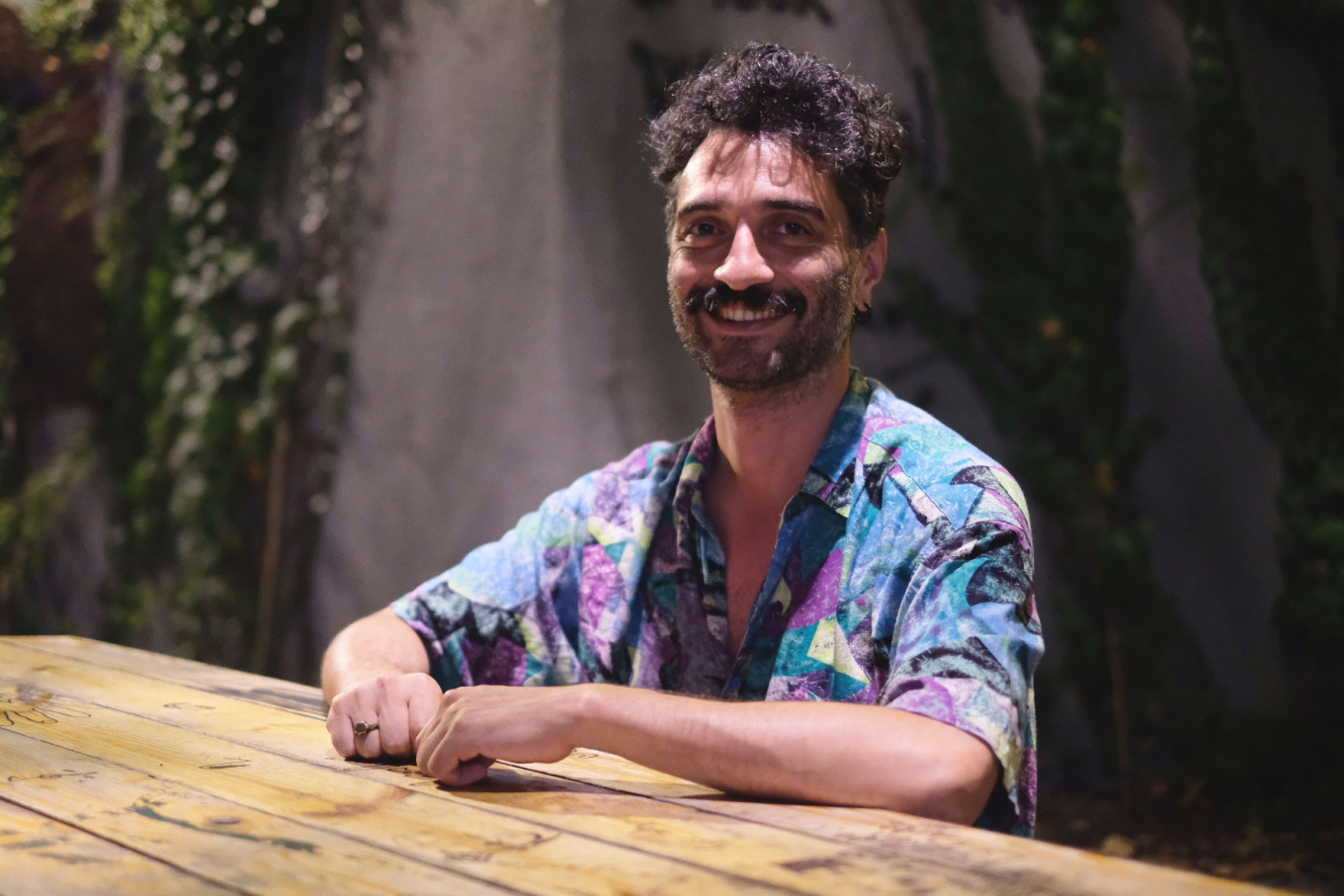
Security concerns have also been fueled by reports of Russians working for the Federal Security Service (FSB) in Georgia. A Muscovite claimed in July he was recruited to spy on Russian dissidents in Tbilisi, while an employee of opposition leader Alexei Navalny who was working for the FSB also recently admitted he relocated to Georgia.
“I fear that there might be some kind of provocation from Moscow due to the large number of Russians,” said Nino, a Georgian who declined to provide her surname.
“People come here, they start buying apartments, they have a residence permit, they don’t learn Georgian and then — who knows — what if Russia comes here to ‘protect’ its people like it’s doing in Ukraine?” she told The Moscow Times in Tbilisi.
While the Georgian capital is famous for its hospitality, restaurants and nightlife, some politicians have called for the introduction of visas for Russian tourists since the war.
Ukrainian flags are a common sight on the streets of Tbilisi, and one street banner on display on a recent visit referenced Georgia’s famous cuisine: “Putin is killing people in Ukraine while Russians eat khachapuri in Georgia.”
There is also evidence that Georgian border guards are increasingly denying entry to prominent Russian journalists and activists when they try to enter the country.
Those who oppose restrictions for Russian citizens argue that targeting Russians is only likely to increase tensions with locals.
“Most people who moved to Georgia do not support Putin’s policy and the war — these are the people who go to protests and speak up loudly about their political views,” said one Russian expat with Georgian roots.
“These [restrictions] might backfire and push people back to Putin,” she added.
At the same time, a number of Russian opposition activists believe there is nothing problematic about asking Russians to express their opposition to Putin.
Anton Mikhalchuk, a Tbilisi-based activist and manager for the Free Russia Foundation, posted a photo from the bar last month, arguing that the alleged presence of significant “Russophobia” in Georgia was merely Russian “propaganda.”
And Lapauri said that, as long as Russian drinkers state their opposition to Putin, they will be treated just like Georgians or guests from any other country.
“We have lots of Russian speakers and many of them are also citizens of Russia and they don’t mind filling in the form,” he said.
“We have positive feedback from them, they like our music and atmosphere.”
Read more



